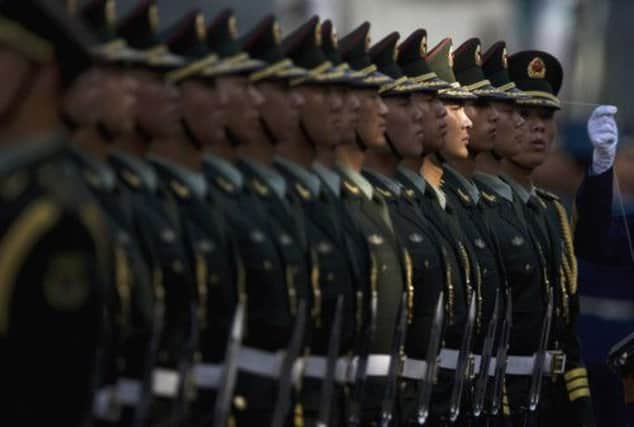China told: look in mirror and take a bath


He wants to show a cynical public that the leadership is serious about corruption, but he appears to be favouring a top-down ideological campaign – with study sessions, self-criticism and propaganda – over imposing real checks on power.
Foreign observers doubt it will work and fear it is a tactic ripped from Mao’s manual on political control.
Advertisement
Hide AdAdvertisement
Hide Ad“Winning or losing public support is an issue that concerns the party’s survival or extinction,” Xi said in a teleconference message late on Tuesday to top party cadres gathered in provinces and cities nationwide.The officials, uniformly dressed in open-collar white shirts, sat in rows and studied sheets of paper in their hands as Mr Xi spoke from a large screen above.
State broadcaster CCTV repeatedly aired footage of the meetings.
Mr Xi said his “rectification” campaign will focus on self-purification, under the slogan “look in the mirror, straighten your attire, take a bath and seek remedies,” the official Xinhua News Agency said. In practical terms, party officials are to “reflect on their own practices and correct their misconduct”.
The campaign is redolent of Mao’s approach to social control. He led a bloody two-decade revolution that ended with the establishment of Communist China in 1949, then held power until his death in 1976. His policies plunged the nation into famine and led to the deaths of tens of millions. Mr Xi’s father was a revolutionary alongside Mao until he fell out of favour in 1962.
“Coming from the leader of such a huge country, it is a bit worrisome and shocking that he apparently is really a true believer of some of Mao’s approaches,” said Willy Lam, a Chinese politics expert and professor at Chinese University of Hong Kong.
Many Chinese still recall the chaos of the Cultural Revolution, the 1966-76 ideological campaign Mao launched to purge the bureaucracy of “capitalist roaders” and restore ideological purity to the revolution.
Youths were “sent down” to the countryside to learn from peasants – including Xi, who spent seven years as a farmer in a northern province. Millions were persecuted after being denounced, sometimes by children, and labelled subversive.
Mr Xi’s “self-purification” plan announced this week might produce a purge of its own. Such ideological campaigns are widely perceived as a means for new party leaders to weed out political opponents.
Advertisement
Hide AdAdvertisement
Hide AdMr Lam said Mr Xi “is resorting to these political campaigns of a bygone era which have proven already that attempts to brainwash people and change their worldview will not work.”
“I’m afraid the reaction of most party members would be quite cynical,” he added. “They’ll put up a show, but whether this purge will improve the moral quality of party members and cadres is another question.”
Pressure on the party to fix corruption is high. As Mr Xi rolled out the new campaign, he was competing for the attention of a public riveted by the trial of a former city official at the centre of a sex tapes scandal in which officials allegedly were extorted by property developers after being secretly filmed in liaisons with hired women.
“This campaign is necessary because the ruling party has been struggling to deal with popular distrust – popular cynical, critical, even confrontational reaction to everything the party says or does,” said Ding Xueliang, a Chinese politics expert at Hong Kong University of Science and Technology.
He added, however, that the campaign is likely to achieve little as a top-down effort in which the party is expected to police itself. “If they are re-using Mao-era slogans to deal with today’s problems, no matter how much resources are put in, the change will be tiny,” he said.